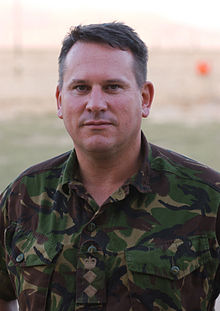Europe needs an anti-ISIS playbook
18/12/2014
Tepid tutting won't stop the flow of Jihadists to Syria, but strong action might.
For decades, European governments have made multiculturalism an integral part of their social agendas, particularly with respect to immigrant Muslim communities. The core values were supposed to be pluralism and individual freedom, but in practice multiculturalism has only stoked radical Islam's unyielding nature and enabled it to subvert European society.
Many immigrant Muslim groups have not only been able to segregate themselves from the larger community. They have also made strident demands of national lawmakers and local authorities for, among other things, the right to exercise Shariah law, to impose Islamic educational principles and to prioritize perceived Muslim sensitivities over Europe's liberal norms.
For many European Islamists, the urge to respond to the call of jihad is strengthened by the governments in Europe that legitimize their grievances. When demonstrators in July chanted "Death to the Jews" while waving the black flag of Islamic State, they gathered freely-not in Syria or Iraq, but in the Hague, where their right to support that genocidal group was protected.
Islamic State has declared, and capably demonstrated, its intentions to achieve genocidal goals. The group espouses an extreme form of Sunni Islam, which it pursues brutally through mass executions, crucifixions and beheadings, and answers to the word of Abu Bakr al-Baghdadi, a zealot so radical that even al Qaeda has denounced him, albeit for its own tactical purpose.
For now, Islamic State's efforts are focused mainly on Syria and Iraq, where it has conquered large swaths of territory and butchered non-Muslims, Sunni "apostates" and Shiite Muslims. If not confronted, however, it's only a matter of time before it turns its attention outward. This week's hostage-taking in Sydney is an early warning of the group's magnetic effect on violent residents of the West. With more than 15,000 European jihadists now fighting with Islamic State, some of these radical soldiers are bound to return home, bloodied, carrying crucial military experience, and with blueprints and orders for further destruction and conquest.
More than 40 countries have already joined an anti-Islamic State coalition. The U.N. Security Council has adopted a binding resolution compelling states to prevent their nationals from joining jihadists in Iraq and Syria. That's a start.
Meanwhile, recent reports indicate that hundreds, if not thousands, of European jihadists are becoming disillusioned with Islamic State. According to media reports, they miss the comforts of home and have been relegated by their recruiters to serving as glorified janitors. Apparently, jihad isn't all it's cracked up to be. Volunteers are quickly discovering that fighting under the Islamic State banner constitutes gang warfare at best. Some want to abandon the world of beheadings and bazookas and undergo deradicalization programs.
The first thing European governments should do is make an example of these traitors. Where possible, those who went to fight jihad should be barred from returning. Those who must be allowed back should be prosecuted to the fullest extent of the law.
Second, European governments should launch devastating and unrelenting ground and air attacks to stamp out Islamic State. Visible and humiliating destruction and defeat of large elements of Islamic State is vital to discouraging more volunteers from joining and to dissuading their funders and supporters from strengthening them. The timorous and defeatist argument that killing jihadists serves as a recruiting sergeant for them can be dismissed, unless we are willing to simply surrender.
Third, large-scale efforts must be made to close the political playing field to racists and radicals in Europe, who seek to undermine Western values. Only when Western leaders can speak freely about the threat posed by Islamism, without having to fear violence and assassination in the street, can counterterror measures across Europe be relaxed.
Last year, after two Muslim converts killed British soldier Lee Rigby in broad daylight in London, one of us, Col. Kemp, went on record as saying the fault for the vicious murder does not lie solely with the individuals who carried out that vicious attack, but also with the "cowardly preachers of hate who seek out the gullible, poison their minds . . . and spur them on to bloody atrocities." The terrorist group al-Shabaab promptly responded by putting a price on Col. Kemp's head.
When Europeans surveyed the destruction after World War I and wrongly calculated that their culture-and not their unwillingness to overcome evil impulses-caused them to kill millions of people and destroy irreplaceable architectural glories, they began to sap themselves of the necessary strength to defend against the onslaught of other cultures. To survive, Europe today must again convince itself that its heritage is worth preserving. Its national leaders must demonstrate that they have the capacity and the commitment to save its identity. For this, there must be an immediate and serious retaliation against the forces of violent jihad.
Col. Kemp was commander of British Forces in Afghanistan in 2003 and headed the international terrorism team at the Joint Intelligence Committee of the British Cabinet Office from 2002 to 2006. Mr. Raskas is a combat veteran of the Israel Defense Forces.
Back to all
